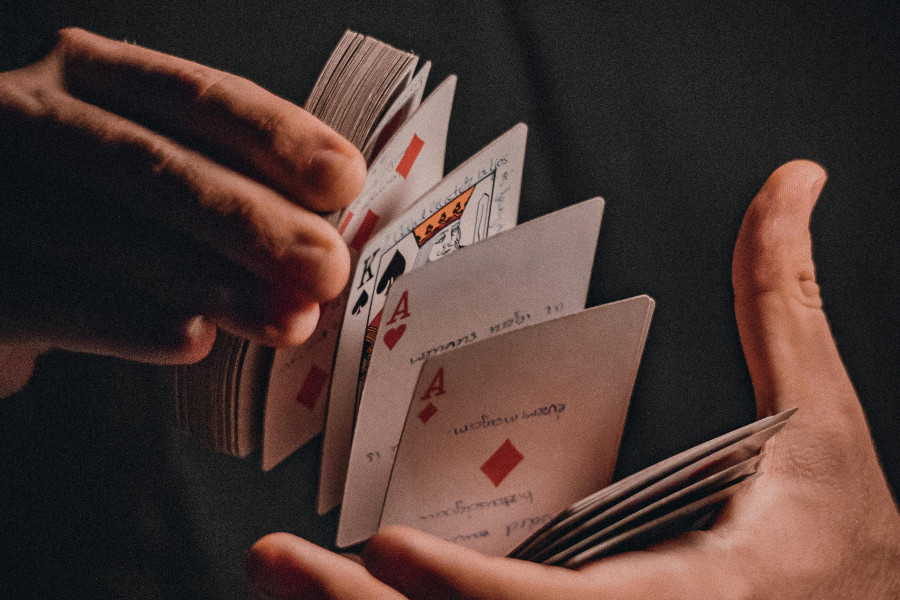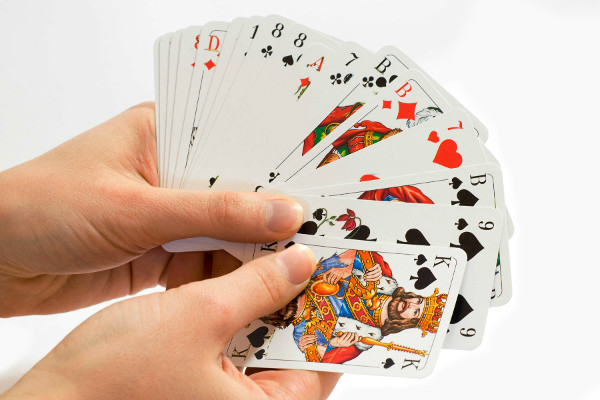How to Learn a New Magic Trick: 15 Expert Tips and Advice for Beginners
If you’ve ever been fascinated by the world of magic and wondered how to learn a new magic trick, you’re in the right place. It's all about illusions and deceit but in an entertaining and skillful way. Are you a complete beginner? Or are looking to refine your skills to impress your audience? Whichever level you are at, this guide will help you to get started and master your craft. From simple sleight of hand to advanced illusions, we’ve got you covered with practical tips, tricks, and advice to help you master the art of magic and dazzle your friends with your newfound skills.

How do I learn a new magic trick?
Learning a new magic trick is like stepping into a world of wonder and mystery. Start by breaking the trick into manageable steps. Whether you're watching tutorials or reading books, focus on the core techniques first. Once you’ve got the basics, practice them slowly and steadily. As you repeat, the movements will become second nature. Don’t rush the process – magic isn’t just about the trick; it’s about the performance. Keep practicing, and soon you’ll be able to wow your friends with your new magical skills. After all, practice and patience are your best friends in magic.
What are the easiest magic tricks to learn?
When you're just starting out, look for tricks that require minimal equipment and focus mainly on simple sleight of hand. A few great tricks to begin with include "The Vanishing Coin," "The Floating Ring," and basic card tricks like "The Invisible Palm." These tricks are relatively easy to master because they rely on basic misdirection and simple motions that look impressive. Don’t forget: the real magic happens in the presentation. The more you practice, the smoother your movements will be, and before you know it, you'll have a solid repertoire to show off.
Where can I find tutorials for magic tricks?
The internet is an endless well of knowledge when it comes to learning magic tricks. YouTube is a goldmine for free tutorials, where professional magicians break down tricks step by step. If you’re looking for something more structured, websites like "Ellusionist" and "Theory11" offer paid courses that delve deeper into advanced techniques. There are also mobile apps for magic, like "Magic Tricks Wizard," that make learning fun and interactive. Explore online forums or social media groups, where magicians share their tricks and tips. It's all about finding the right resources to suit your learning style.
How long does it take to master a magic trick?
The time it takes to master a magic trick can vary. Some tricks are simple and may only require a few hours of practice, while others, especially those that involve sleight of hand or elaborate props, may take weeks or even months to perfect. It’s important to remember that magic isn’t about instant results – it’s a journey of continuous improvement. The more time you put into practicing the mechanics and refining your performance, the better you’ll become. With dedication and patience, you’ll be able to perform with the finesse of a seasoned magician.
What are the best magic tricks for beginners?
When starting out, focus on tricks that rely on simple techniques and minimal props. "The Vanishing Coin" is a classic beginner trick that will have your friends amazed, while card tricks like "The Self-Working Card Trick" or "The Two Card Trick" are perfect for those looking to impress with sleight of hand. You can also explore the world of rope tricks, like "The Cut and Restored Rope," which are easy to learn and visually striking. The best part is, these tricks are highly portable and can be performed anywhere – so you're always ready to dazzle.

Can you learn magic tricks online?
Absolutely! The digital age has made learning magic tricks easier than ever. Whether you’re watching YouTube tutorials or enrolling in courses on websites like "Ellusionist" or "Theory11," you have access to top-quality lessons right at your fingertips. Apps like "Magic Tricks Wizard" also let you learn tricks interactively, helping you master sleight of hand and other skills. Plus, online communities and forums dedicated to magic allow you to exchange tips and get feedback from fellow magicians. The magic world is now open to you wherever you are.
What are some advanced magic tricks to learn?
If you’re ready to step up your game, advanced tricks like "The Invisible Palm," "Card Manipulation," and "The Card Warp" will push your skills to new heights. These tricks demand precision and flawless timing, as well as the ability to perform under pressure. If you're more into illusions, stage tricks like "Levitation" or "Sawing a Woman in Half" offer thrilling experiences that require elaborate setups and a deep understanding of misdirection. Mentalism, or the art of mind-reading, is another advanced area that mixes psychology and illusion to create truly mind-blowing performances.
How do magicians practice new tricks?
Magicians practice new tricks by taking things slow and focusing on one move at a time. Mastery begins with understanding the trick’s core principles, whether it’s sleight of hand, misdirection, or timing. They often use mirrors or record themselves to pinpoint areas for improvement. Repetition is key, and once they’re comfortable with the basic movements, they’ll practice performing in front of others, refining their delivery and stage presence. It’s not just about knowing the trick – it’s about making it look effortless and engaging. With patience and practice, perfection will come.
What equipment do I need to learn magic tricks?
To get started, you don’t need much at all. A simple deck of cards, a few coins, and perhaps some rope or rubber bands can go a long way in performing some of the most popular tricks. As you get deeper into magic, you might find yourself using specialized props like magic wands, mirrors, or custom-built devices for illusions. But the most important tool in your magician’s kit is your skill. Focus on perfecting basic techniques, and you’ll be able to create magic from almost anything. The trick is in the hands, not the props.
How do magicians perform sleight of hand?
Sleight of hand is all about precision, timing, and misdirection. It’s the art of subtly manipulating objects right under the audience’s nose without them noticing. Magicians spend hours refining their finger dexterity, perfecting moves like palming, false shuffling, and quick switches. Misdirection plays a huge role – while the audience’s attention is focused on one thing, the magician is quietly executing the trick. With practice, these movements become instinctive. It’s a skill that’s built over time, but once you’ve mastered the basics, you’ll be able to make objects appear, disappear, and transform with ease.
Are there any magic trick apps for learning new tricks?
Yes, there are several magic trick apps designed to teach you the basics and beyond. Apps like "Magic Tricks Wizard" or "Learn Magic Tricks" provide step-by-step guides and video tutorials to help you pick up new tricks. These apps often include interactive features, allowing you to practice directly within the app and track your progress. For a more immersive experience, some apps even teach sleight of hand or mentalism. They’re a great tool for learning on the go, helping you master new tricks wherever you are, whether you’re commuting or relaxing at home.
What’s the secret to learning magic quickly?
The secret to learning magic quickly lies in consistency and focus. Start small and master simple tricks before moving on to more complex ones. Break each trick into smaller parts and practice them one by one until they feel natural. Repetition is your best friend – the more you practice, the faster your skills will improve. And while it’s tempting to rush through the process, take your time with each new trick. Remember that magic is about both technique and performance, so balancing both aspects is key to making progress quickly.
How can I improve my magic performance skills?
Improving your magic performance is just as important as mastering the tricks themselves. The key is practice, but also learning how to engage and captivate your audience. Work on your timing, body language, and presentation to make each trick seem effortless. Performing in front of a mirror or recording yourself can help you perfect your gestures and posture. The more you practice, the more confident you'll feel. Also, watching other magicians perform can inspire new ideas and techniques that will elevate your own performances. Magic is about storytelling, so craft your routine to keep the audience hooked.
What are the most popular magic tricks to learn?
Some of the most popular magic tricks that every beginner should learn include the "Vanishing Coin," "Cups and Balls," and "The Classic Card Trick." Card tricks, like "The Invisible Palm" and "The Triumph Shuffle," are crowd-pleasers and great for building your sleight of hand skills. Coin tricks are also a favorite, such as "The Coin Through Glass." For those interested in stage illusions, tricks like "The Levitation" or "The Sawing in Half" illusion are iconic and impressive. These tricks may seem complex, but with practice, you can master them and add them to your magic repertoire.
How do magicians create new tricks?
Creating new magic tricks is all about innovation and creativity. Magicians start by understanding the principles behind existing tricks – like misdirection, sleight of hand, and psychology – and experiment with ways to combine these elements in unique ways. They often modify props or create entirely new ones to achieve different effects. It’s a process of trial and error, where magicians test and refine their ideas until they’ve perfected something new. Inspiration can come from anywhere, whether it’s a new sleight, a piece of technology, or even a change in the way audiences perceive magic.



